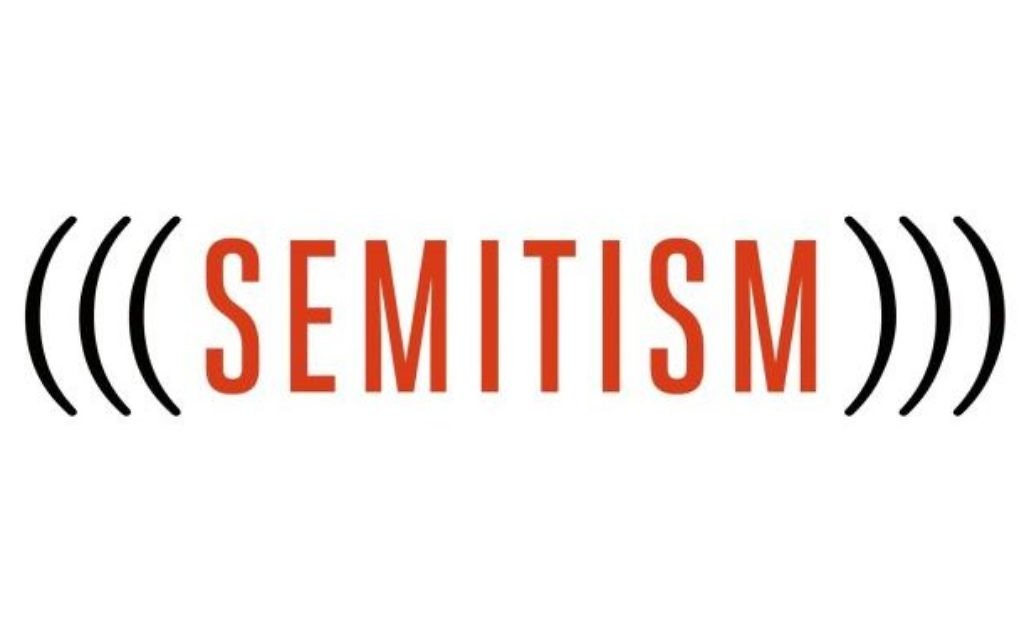Anti-Semitism an Ill Wind, From Right or Left
Jonathan Weisman's new book, "(((Semitism)))," focuses on the battles on only one side of the spectrum.
Passover is the ultimate expression of “They tried to kill us. We won. Let’s eat.”
(Anyone unfamiliar with that line should check the expiration date on their MOT membership card.)
The haggadah recounts Pharaoh’s subjugation and persecution of the Jews until their liberation and flight from Egypt, thanks to the divine intervention of a “mighty hand and an outstretched arm.”
Get The AJT Newsletter by email and never miss our top stories Free Sign Up
A new book, released in time for discussion during this year’s seder meal, asserts that American Jewry’s response to current-day anti-Semitism has been inadequate.
The author is Atlanta native Jonathan Weisman, an editor in The New York Times‘ Washington bureau.
“If not quite a crisis, it feels like a proto-crisis, something to head off, especially when the rise of anti-Semitism is combined with hate crimes against Muslims, blacks, Hispanics and immigrants,” Weisman wrote in an essay published by his newspaper.
In June 2016, I wrote about Weisman’s travails with anti-Semitism when he was targeted online by the “alt-right,” a too-polite term for neo-Nazis and white supremacists who felt emboldened by the presidential candidacy of Donald Trump.
Weisman’s book — “(((Semitism))): Being Jewish in America in the Age of Trump” — grew out of that experience. The triple parentheses are used by online trolls to identify Jews. (Joe Sterling says in his review that it’s a book people need to read.)
“There’s nothing particularly new about the ideology, but there’s something quite new about the way the alt-right is going around spreading and organizing the ideology,” Weisman told the Forward.
Weisman, who became a bar mitzvah at The Temple, suggests that American Jewry — particularly its major organizations — has become overly fixated with Israel and paid insufficient attention paid to a scourge at home.
“American Jews are still loath to see it,” Weisman wrote in his book, “but the Israel diversion is proving to be a trap.”
American Jews, Weisman said in his Times essay, “need to assert a voice in the public arena, to reshape our quiescent institutions and mold them in our image. And Jewish leadership must reflect its congregants, who are not sheep.”
I know Jews fighting anti-Semitism, Jews engaged in Israel-related issues, and Jews — both individuals and organizations — who do not see these pursuits as mutually exclusive.
The hardly quiescent Anti-Defamation League — which rose to national prominence in response to the 1913 Atlanta trial of Leo Frank, a Jew who was lynched in Marietta two years later — reported a 57 percent increase in anti-Semitic incidents in America in 2017 compared with 2016.
As for those “congregants, who are not sheep,” in Weisman’s hometown the Atlanta Initiative Against Anti-Semitism (founded two years ago by Jewish day school mothers) has demonstrated the value of action that flows from the bottom up, so to speak.
Writing about Weisman’s book, Haaretz correspondent Allison Kaplan Sommer observed that “the American-Jewish community is often simply too divided to define what anti-Semitism is — making it impossible to combat it in a unified fashion. Nearly all Jews can call out an anti-Semite sporting a Nazi uniform or a Klan robe. But without such clear visual cues, anti-Semitism is too often in the eye of the beholder.”
Weisman’s personal experience and his study since convinced him that the greater threat, what he termed “nationalist bigotry,” blows from the far right, not only in the United States, but across Europe as well.
Frankly, an ill wind, regardless of the direction from which is blows, is still an ill wind.
A whiff of anti-Semitism emanates from the intersectional left, whose leaders appear disinclined to denounce (let alone dissociate from) the latest anti-Jewish diatribe by Nation of Islam leader Louis Farrakhan, leaving some otherwise supportive Jews to question their allegiance.
A similar aroma arises from the boycott, divestment and sanctions movement when rhetoric opposing Israeli government policies veers into denigrating Jews who support Israel.
“So no, American Jews have been anything but shy or hesitant about denouncing anti-Semitism,” Sommer wrote in Haaretz. “But they do it much more vehemently when the anti-Semitism exists in the opposing political camp.”
Now that is a trap to avoid.





comments